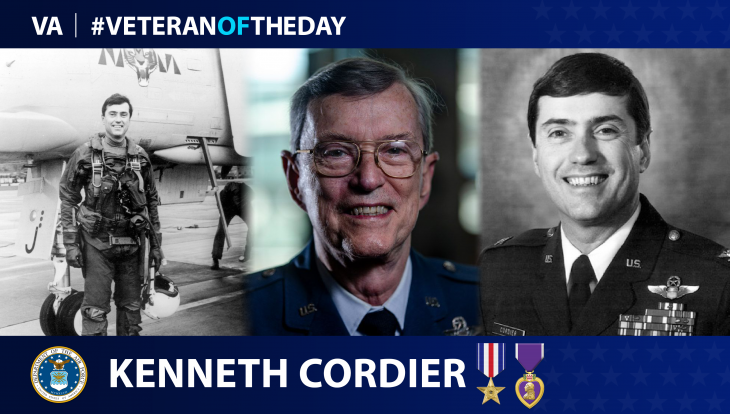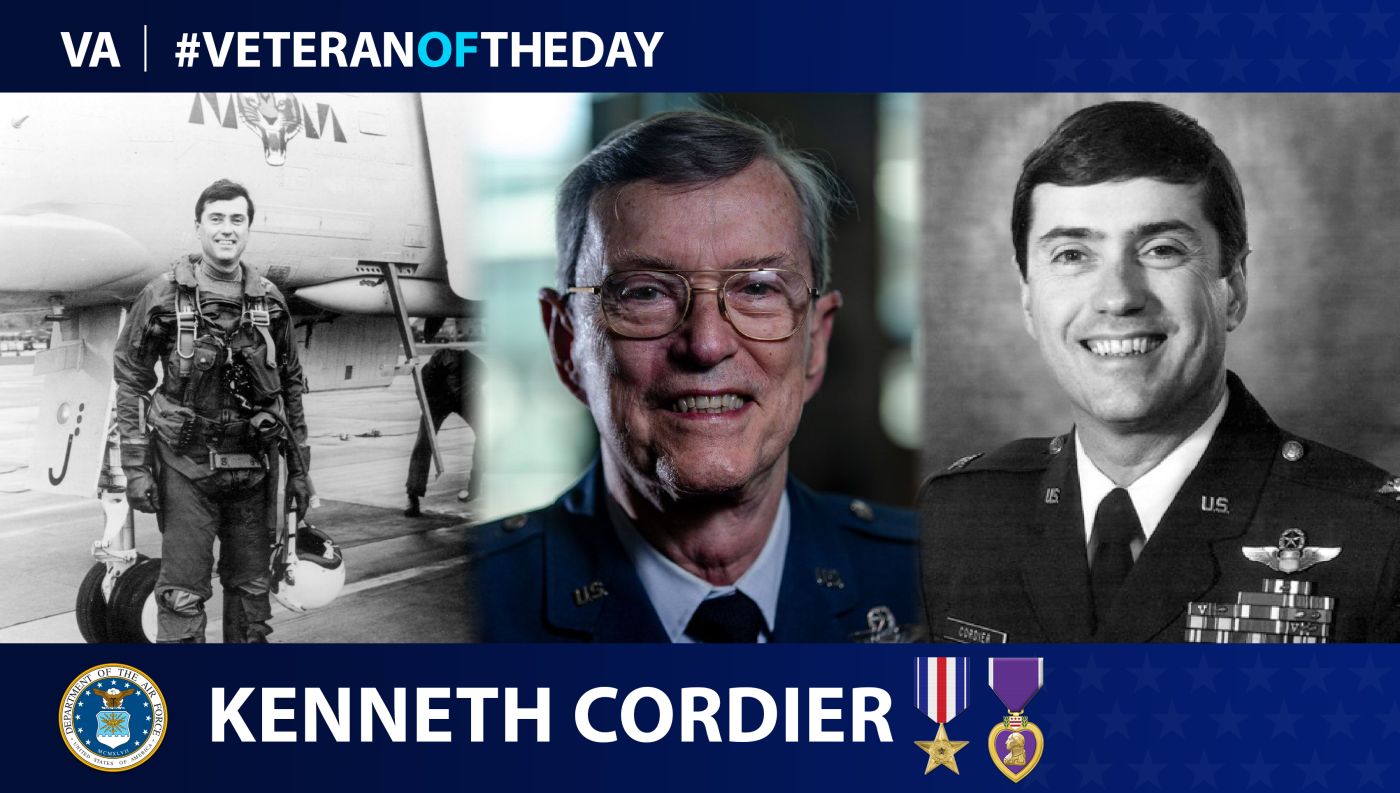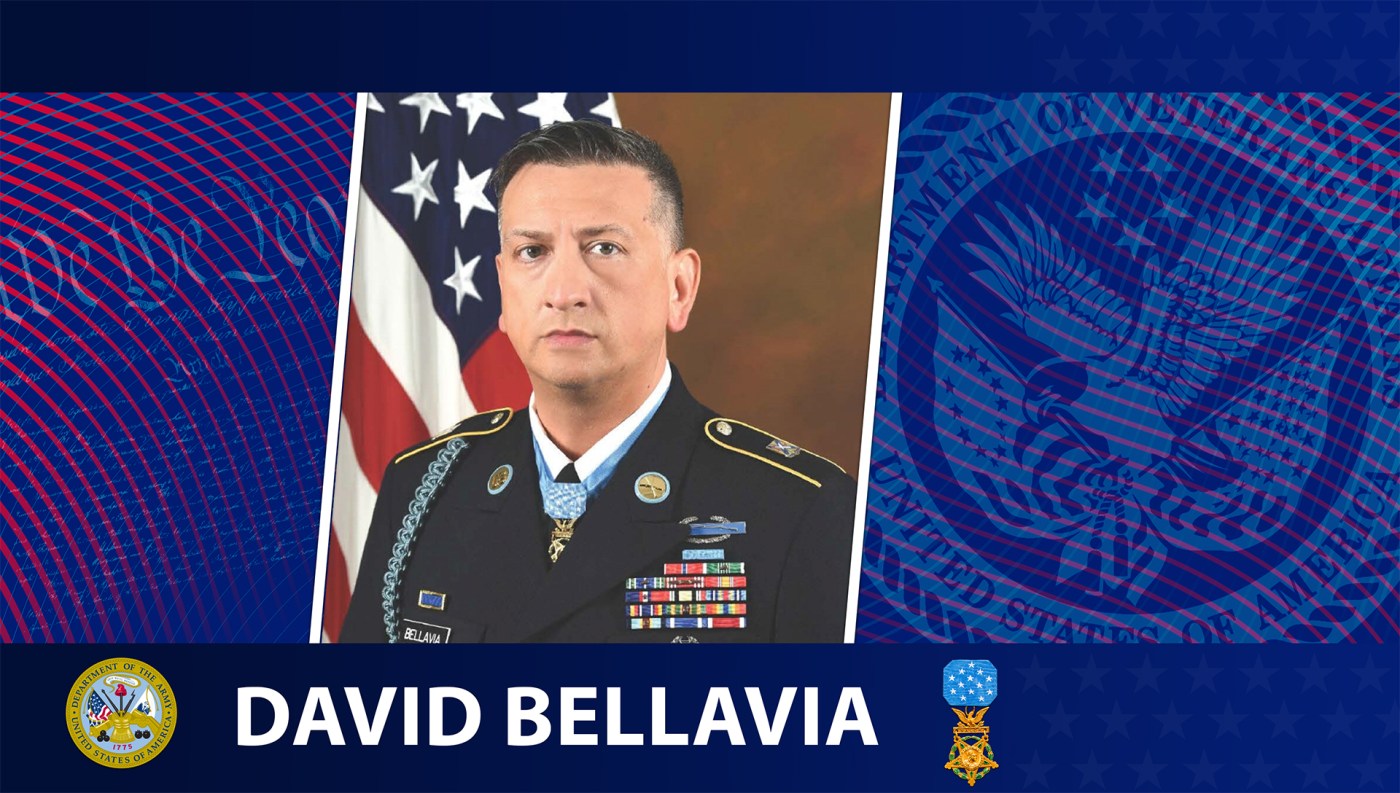
Today’s #VeteranOfTheDay is Air Force Veteran Kenneth Cordier, who was a pilot and prisoner of war during the Vietnam War.
Kenneth Cordier was born in February 1937 in Canton, Ohio, and raised in the nearby city of Akron. While attending the University of Akron, he joined the Air Force Reserve Officer Training Corps. In 1960, after graduation, Cordier became a commissioned officer with the Air Force.
Cordier completed his pilot training in 1964 and went to MacDill Air Force Base in Florida, where he flew F-4 Phantom II fighter-bombers with the 45th Tactical Fighter Squadron. His first deployment came in 1965 to Ubon Royal Thai Air Force Base in Thailand. Here, he flew 59 missions as a backseat co-pilot over North Vietnam and Laos.
After returning to the U.S., Cordier volunteered for a second tour in Vietnam. This time, he went to Cam Rahn Bay Air Base, where he served as a front seat pilot. In an interview with the Library of Congress’ Veterans History Project, Cordier described his daily schedule as “sleep, breakfast, brief, fly, o-club, sleep.” Cordier completed 175 flying missions while on his second tour. In December 1966, while Cordier was on his 176th flying mission, a surface-to-air missile hit his F-4 jet. This caused him to crash 85 miles north of Hanoi, where North Vietnamese soldiers captured him.
Cordier lived in an eight by seven feet cell with bricks covering the vents and windows. A lightbulb was always on, and a speaker constantly played North Vietnamese propaganda. Additionally, Cordier and the rest of the POWs were not allowed to communicate with each other while in their cells, which lead to them developing a “tap code” to communicate with each other. The enemy deprived POWs of medical care, which became problematic when an influenza outbreak hit Cordier’s prison. Cordier described how the tough living conditions brought all the POWs together, as they had to work together to survive.
In total, Cordier spent time in four different prisons until he was finally freed on March 4, 1973, during Operation Homecoming. After spending a few months recovering from his experience, he attended the Armed Forces Staff College. In 1979, Cordier went to Sembach Air Base in West Germany to direct flight operations and command the reactivation of Wiesbaden Air Base. His final assignment took him to the United Kingdom, where he served as an air attaché at the U.S. Embassy in London.
Cordier retired from the Air Force with the rank of colonel in 1985 and completed over 2,000 flying hours. During his service, he has earned two Silver Stars, a Legion of Merit, a Distinguished Flying Cross and a Purple Heart, as well as various additional honors.
Today, Cordier lives in Dallas, Texas, where he works as an inspirational speaker using his experience as a POW to inspire others.
Thank you for your service!
Nominate a Veteran for #VeteranOfTheDay
Do you want to light up the face of a special Veteran? Have you been wondering how to tell your Veteran they are special to you? VA’s #VeteranOfTheDay social media feature is an opportunity to highlight your Veteran and his/her service.
It’s easy to nominate a Veteran. Visit our blog post about nominating to learn how to create the best submission.
Veterans History Project
This #VeteranOfTheDay profile was created with interviews submitted to the Veterans History Project. The project collects, preserves, and makes accessible the personal accounts of American war Veterans so that future generations may hear directly from Veterans and better understand the realities of war. Find out more at http://www.loc.gov/vets/.
Contributors
Writer: Raymond Lin
Editor: Christopher Wilson, Julia Pack
Fact checker: Vivian Hurney
Graphic artist: Helena Strohmier
Topics in this story
More Stories
This week’s Honoring Veterans Spotlight honors the service of Army Veteran David Bellavia, who received a Medal of Honor from the Iraq War’s deadliest operation, the Second Battle of Fallujah.
This week’s Honoring Veterans Spotlight honors the service of Army Veteran Scotty Hasting, who served in Afghanistan.
This week’s Honoring Veterans Spotlight honors the service of Army Veteran Roy Sheldon, who served in 97th General Hospital in Frankfurt, Germany.






